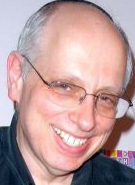Study at iTunes U

What’s on your iPhone or MP3 player? Taylor Swift? Drake? Lennon and McCartney? Well, put them on pause because class is about to begin — at iTunes U.
ITunes, of course, is the free Apple software best known as the program used to purchase, download and listen to music on iPads and iPhones.
But universities and other organizations also use iTunes to distribute recordings of courses and lectures which you can enjoy during a boring commute or a jog around the neighborhood. It’s free, and much of the content is of particular interest to Jewish students of all ages.
Two New York-based institutions have created huge repositories of excellent interviews and lectures that will have you listening for weeks.
The Jewish Theological Seminary’s offerings are diverse and engaging. The What to Wear series examines topics that you may have missed in Hebrew school like From Jewess Jeans to Juicy JAPs: Clothing and Jewish Stereotypes and The Naked and the Damned: Stripping in the Bible. More subdued (presumably) are sessions on Torah commentary, Sephardic History, and Challenges of the 21st Century (http://bit.ly/jitunesu1).
Over on Manhattan’s East Side (and right at your fingertips), the 92nd Street Y is famous for the luminaries who have walked through its doors. How’s this for a lineup: Carl Reiner, Gene Wilder, Art Buchwald, Richard Lewis and Sarah Silverman in the Comedy section (bit.ly/jitunesu2), Hedonistic, Healthy and Green with Michael Pollan and Dan Barber in the Food section (bit.ly/jitunesu3), and how’s this for interesting pairings: Gloria Steinem and Alice Walker, Edgar Bronfman with Charlie Rose, and Shmuley Boteach and Christopher Hitchens in News and Politics (bit.ly/jitunesu4).

When I learned Hebrew back in day school, it was nothing like the way they do it at Concordia Seminary in St. Louis. Dr. Andrew Bartelt’s course, Elementary Hebrew, is geared toward seminary students. The course was recorded and is now presented in 282 parts ranging up to 30 minutes each. If, like me, you enjoy arcane Hebrew grammar, you’ll love this online review with topics like segolate nouns, cohortatives and geminate qal perfect. If you prefer to wing it in Hebrew, then stay far away from Dr. Bartelt’s classroom. (bit.ly/jitunesu5).
Much of the content at iTunes U consists of recordings of lectures by guest speakers like Judea Pearl. Prof. Pearl is the father of the Jewish American journalist Daniel Pearl who was murdered by Islamic militants in Pakistan.
Following an invitation by the American Jewish Committee, Prof. Pearl toured university campuses along with Prof. Akbar Ahmed in a series of talks titled The Daniel Pearl Dialogue for Muslim-Jewish Understanding. Theirs is a fascinating dialogue: passionate and heartfelt yet always respectful (bit.ly/jitunesu6).
After that, you can spend an evening with Alan Dershowitz, or at least an hour and 34 minutes. That’s what a roomful of students did earlier at Stanford University.
His talk touched on everything from the Palestinian (and Jewish) right of return, the legacy of Jimmy Carter to the irony of a Mickey Mouse-like character being used for antisemitic purposes (bit.ly/jitunesu7).
More than a half a century after he passed away, Albert Einstein continues to amaze and mystify. The 22-part radio series, Einstein & the Mind of God delves “into Einstein’s Jewish identity, his passionate engagement around issues of war and race, and…Einstein’s way of thinking about mystery, eternity, and the mind of God.” Download and ponder over three hours of radio documentaries and interviews about the genius.
For the talk about Einstein and Judaism, click on Interview No. 2. It’s mislabelled (bit.ly/jitunesu8).
And speaking of Einstein, check out the interviews with the late Pete Seeger. What’s the connection between the father of the theory of relativity and the veteran folkie? Seeger recounts an incredible story (Track 13) about Yiddish novelist Sholem Asch and Asch’s son Moe who travelled to Princeton in 1939 to record Einstein urging American Jews to help get their brethren out of Europe.
Later that day, Einstein chatted with young Moe and encouraged him to pursue his interest in recording American folk singers. Moe Asch went on to found Folkways Records, famous for recording Seeger, Leadbelly and Woody Guthrie (bit.ly/jitunesu9).
Mark Mietkiewicz writes about resources for Jewish life to be found on the Internet. Contact him at highway@rogers.com.
To read the complete May 2016 Dayton Jewish Observer, click here.





